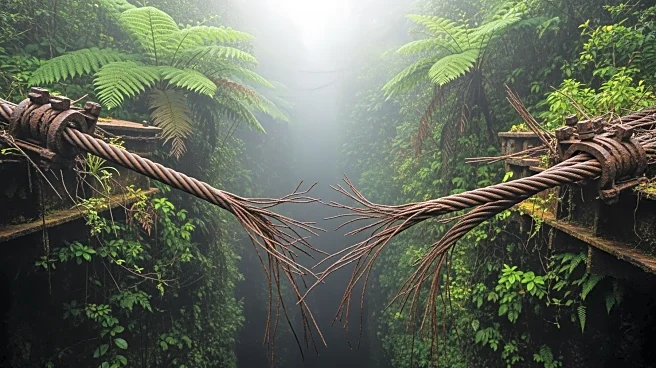What's Happening?
A tragic incident occurred at the Kalando mine in southeastern Lualaba province, Democratic Republic of the Congo (DRC), where a bridge collapsed, resulting in at least 32 deaths. The collapse was caused by overcrowding as wildcat miners rushed across
a makeshift bridge built to cross a flooded trench. Despite a formal ban due to heavy rain and landslide risks, miners forced their way into the quarry. Gunfire from soldiers at the site reportedly sparked panic, leading to the rush and subsequent collapse. The mine has been a point of contention between wildcat miners, a cooperative, and legal operators with Chinese involvement.
Why It's Important?
The incident underscores the dangers associated with artisanal mining in the DRC, a country rich in cobalt and copper resources. The collapse highlights ongoing issues of safety, regulation, and conflict in the mining sector, which is crucial for global supply chains, particularly for electric vehicle batteries. The involvement of Chinese companies in the DRC's mining industry adds an international dimension to the tragedy, potentially affecting global market dynamics and prompting calls for improved safety standards and regulatory oversight.
What's Next?
Provincial authorities have suspended operations at the site, and there are calls for an independent investigation into the military's role in the deaths. The incident may lead to increased scrutiny of mining practices in the DRC and pressure on international companies to ensure safer working conditions. The tragedy could also influence policy discussions on artisanal mining and the need for better enforcement of safety regulations.
Beyond the Headlines
The collapse highlights broader issues of exploitation and human rights abuses in the DRC's mining sector, including child labor and unsafe working conditions. It raises ethical questions about the global demand for minerals and the responsibility of international companies to ensure ethical sourcing.
















